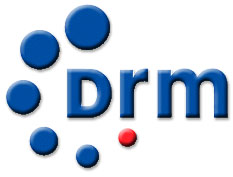 Many thanks to SWLing Post reader, Mike, for sharing this news item on RadioInfo:
Many thanks to SWLing Post reader, Mike, for sharing this news item on RadioInfo:
(Source: RadioInfo)
The latest upgrade to DRM’s audio codec was demonstrated in a presentation at this week’s Digital Broadcasting Symposium in Kuala Lumpur. Digital Radio Mondiale (DRM) is the first global broadcast standard to adopt the Extended HE-AAC (xHE-AAC), which promises improved quality for DRM broadcasts in SW, AM and FM.
Alex Zink, the Senior Business Development Manager for Digital Radio at Fraunhofer, outlined the benefits of DRM in emergency situations, particularly the ability of DRM transmissions to signal receivers to turn on automatically and deliver emergency warning messages in a crisis.
“Unlike consuming radio on a smart phone, there is no gatekeeper in between digital free to air broadcasting and the consumer,” said Matthias Stoll in his presentation during the afternoon workshop.[…]
Read more at: http://www.radioinfo.com.au/news/new-audio-codec-drm-digital-symposium-2014 © Radioinfo.com.au

Herr Stoll uses the magic words : “…no gatekeeper…”
I look forward to seeing how the codec improvements work out.
Basically sounds like Fraunhofer’s version of Opus (http://en.wikipedia.org/wiki/Opus_%28audio_codec%29)
I wish digital broadcasters would also support Opus especially seeing as how it’s seeing widespread adoption in many other fields.
The xHE-AAC codec will seriously aid the adoption of DRM IF the majority of broadcasters use robust configurations on the shortwave bands, i.e. a Main Service Channel (MSC) of 16 QAM instead of 64 QAM. I strongly disagree, however, that 60% power savings is possible with digital broadcasts IF a MSC of 64 QAM is to be usable on the shortwave bands. Clearly, digital broadcasts employing a MSC of 64 QAM are underpowered at 40% of analog power levels as literally thousands of logs on http://www.drmrx.org demonstrate. With current recommended power levels of 40% of analog, broadcasters must primarily switch to a MSC of 16 QAM on the shortwave bands. Adoption of the xHE-AAC will allow broadcasters more flexibility, quality and reliability as they lower their bit-rates to ~ 14 kbps with a MSC of 16 QAM and still retain very good quality.